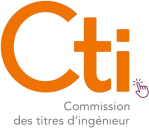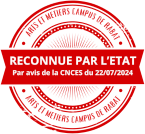
At Arts et Métiers, the shared objectives of research and industry partners drive many of our collaborations. They fuel the development of projects and skills in order to achieve innovative advances in research applications and technologies in response to rapid technological changes. This approach enables Arts et Métiers to maintain the highest level of expertise and to be involved in multiple European Projects, both as a partner and as a coordinator.

Overview of Arts et Métiers projects that are currently funded by the European Union’s prestigious Horizon 2020 program, including Research and Innovation Actions (RIA), Innovation Actions (IA), ERCs, and Marie Skłodowska-Curie Actions:

- ACONIT (Actuators for Surge Control in Gas Turbine): the objective is to design, manufacture and test actuators for flow control, for implantation in an aircraft engine in order to fulfill aeronautics needs. Focusing on the extension of the stable operating range of the axial compressor, will allow a reduction of the surge margin by postponing the stall onset. The European Commission awarded a Research Innovation Action Clean Sky grant of € 1.60 million to the project and Arts et Métiers is the head coordinator.
- PERSEUS (Pulsed jEt actuatoRs for SEparation control of tUrbulent flowS) will combine wind tunnel experiments with numerical simulations and sensitivity analysis to improve the control authority of pulsed jet actuators to separated turbulent flows over a 2.5D airfoil equipped with a flap. The target of this approach is to determine the minimum net-mass-flux required by pulsed jet actuators to compensate for the momentum deficit in the boundary layer and thus reduce CO2 emissions, while improving the maneuvering capability, safety, and durability of the aircraft. The project received € 700k under the European Commission RIA Clean Sky program.

- INEDIT (open INnovation Ecosystems for Do It Together process) creates an open innovation European DIT ecosystem for sustainable furniture co-creation. Through its twin - digital and physical - platform, it intends to demonstrate the innovation potential of social manufacturing within the circular economy by designing globally while producing locally, thereby reducing CO2 emissions, creating EU business and job opportunities, and reducing ethical concerns. This project is funded by a € 6.04 million Innovation Action European Commission grant. Arts et Métiers is the head coordinator of this project.

- THREAD (Joint Training on Numerical Modelling of Highly Flexible Structures for Industrial Applications) addresses the mechanical modelling, mathematical formulations, and numerical methods for designing highly flexible slender structures, as well as the complex response of such structures in real operational conditions. This European Training Network involves 12 academic and 14 industrial partners and received a € 3.64 million MSCA stipend.

- IoTwins (Distributed Digital Twins for industrial SMEs: a big-data platform) aims to build a reference architecture for the development and deployment of distributed and edge-enabled digital twins of production plants and processes using data related to the manufacturing and facility management optimization domains. The project received a € 16.4 million Innovation Action contribution from the European Commission.

- STEADIEST (Supercritical composiTE mAin DrIvE SysTem): its aim is to design, develop and determine the flight qualifications of a supercritical composite shaft drive line for a tiltrotor main drive system. Our researchers are in charge of technical solutions for energy dissipation and for the minimization of vibration during speed changes. The European Commission is contributing € 429 k to this project under its IA Clean Sky 2 initiative.

- ASSALA (Advanced Simulation Solutions Applied to Quality Control of Laser Deposited Metals): the main objective is to develop a methodology to predict defect generation likelihood induced by the interaction of robot inaccuracies and thermal effects during the Laser Wire Deposition (LWD) process of Titanium, integrating deterministic and advanced statistical models applied on the manufacturing of new generation aero engine structures. This project was granted a € 600k RIA Clean Sky grant by the EU Commission.

- UPSCALE (Upscaling Product development Simulation Capabilities exploiting Artificial inteLligence for Electrified vehicles): the goal of this project is to integrate artificial intelligence (AI) methods directly into traditional physics-based Computer Aided Engineering (CAE)-software and –methods in order to reduce the development time and increase the performance of electric vehicles. It is funded by a European Commission Research and Innovation Action grant of € 3.99 million.
- FastMat (Fast determination of fatigue behavior of materials beyond one billion cycles): a project designed to develop a new method that considerably reduces the duration of fatigue characterization as well as experimental and numerical tools for the fast determination of fatigue behaviour. It is funded by a € 1.87 million European Commission’s H2020 ERC Consolidator Grant.

- TeaM Cables (European Tools and Methodologies for an efficient ageing management of nuclear power plant cables): this is a research project in the field of nuclear safety and long-term operation. It received €4.2 million in funding from the European Commission’s EURATOM programme.

- ReMap (Real-time Condition-based Maintenance for Adaptive Aircraft Maintenance Planning): The goal of this project is to help reinforce European leadership in aeronautics by developing an open-source solution for aircraft maintenance, the Integrated Fleet Health Management (IFHM) system. By replacing fixed-interval inspections with adaptive condition-based interventions, ReMAP will have an estimated benefit to the European aviation of more than €700 million per year, due to a direct decrease in maintenance costs, reduced unscheduled aircraft maintenance events, and increased aircraft availability. The European Commission’s Research and Innovation Action finances this project with € 6.8 million.
Newly funded Projects
- MORPHO (Manufacturing, Overhaul, Repair for Prognosis Health Overreach) proposes to embed printed and fiber-optical sensors in each aircraft engine blade, thus providing them with cognitive capabilities already while they are produced and developing a digital/hybrid twin models to drastically improve the blades' Life Cycle Management (LCM). A RIA Mobility for Growth grant of € 5 million was recently awarded and Arts et Metiers will be the coordinator of the project.
- DOMMINIO (Digital method for imprOved Manufacturing of next-generation MultIfuNctIOnal airframe parts) aims at developing an innovative data-driven methodology to design, manufacture, maintain and pre-certify multifunctional and intelligent airframe parts through a cost-effective, flexible and multi-stage manufacturing system. The project was just awarded a € 5 million RIA Mobility for Growth grant.
- COMETAS (COncurrent METAmaterial-Structure design using functionally graded metamaterials): is a highly multidisciplinary and intersectoral project to develop an integrated, reliable and efficient multiscale methodology for Concurrent Metamaterial-Structure Design employing functionally graded mechanical metamaterials. It integrates the metamaterial design concurrently with the structural design through double inverse analyses and surrogate continuum models obtained by data-driven techniques. This European Training Network involves 10 academic and industrial partners, including 3 from the United States, and received a € 925k MSCA stipend.

- XS-Meta (Cross-Scale concurrent material-structure design using functionally graded 3D printed Metamaterials): the objective is to train a new generation of researchers in concurrent material-structure design of high-technology structural systems, using functionally graded 3D-printed metamaterials. Applied mathematicians, materials science and manufacturing engineers, continuum mechanics engineers and design engineers combine their theoretical, experimental, computational and industrial knowledge to create a completely novel approach in the design of components of high industrial and social value. The European Commission granted a € 3.72 million MSCA grant to this European Training Network involving 4 industrial partners and 11 academic partners, including 2 American universities.

- DynPT (Development of measurement and calibration techniques for dynamic pressures and temperatures) Focuses on the development of measurement and calibration techniques for dynamic pressures and temperatures € 1.6 million EMPIR project, co-funded by the European Union and the EURAMET member states
Recently finished projects

- MIGRATE (Massive InteGRATion of power Electronic devices): the aim of MIGRATE is to find solutions for the technological challenges the Power Electronics- interfaced generators grid is faced with currently and especially in the future. This project is backed by a € 16.7 million RIA grant from the European Commission’s H2020 program.

- PARSIFAL (Prandtlplane ARchitecture for the Sustainable Improvement of Future AirpLanes): its main objective is to establish the scientific and engineering basis for improving the civil air transport of the future by introducing an innovative aircraft, known as the “PrandtlPlane”. This aircraft has a box-wing configuration, which gives it more aerodynamic efficiency and lower fuel consumption. A € 2.96 million RIA grant from the European Commission is funding the project.

- ColRobot (Collaborative Robotics): a project that designs a new generation of robotics technologies intended to physically interact with humans in a shared workspace, based on their ability to sense their environment. The Commission’s IA program provided a € 3.9 million contribution to the project.

- FULLCOMP (FULLy integrated analysis, design, manufacturing and health-monitoring of COMPosite structures): this project is funded by a € 3.57 million Marie Sklodowska-Curie Innovative Training Networks grant for European Training Networks (ETN). It allows Early Stage Researchers to work in an international framework to develop integrated analysis tools to improve the design of composite structures.

- ESPESA(Electromechanical Systems and Power Electronics for Sustainable Applications): its mission is to strengthen the research activity and to implement a Technology Transfer & Innovation Management strategy at the Centre for Applied Research in Electrical Engineering and Sustainable Development of our partner institution. It was funded by a € 1.25 million grant under the European Commission’s Twinning of research institutions program, which is aimed at significantly strengthening a defined field of research in an emerging institution through links with at least two internationally-leading institutions in a defined field.
- PATO (Porous material Analysis Toolbox): the purpose of this project is to improve reactive porous material models by validating fundamental developments and to implement them in an open source simulation tool to enable process optimization and guide innovation. This project will focus, in particular, on the applications in the design of efficient and optimized thermal protection systems for space exploration vehicles as well as the production of bio-hydrocarbon and bio-carbon from lignocellulosic biomass. This project was funded by a Marie Skłodowska-Curie Individual Fellowship.

- SOTERIA (Safe lOng TERm operation of light water reactors based on Improved understanding of radiation effects in nuclear structural mAterials) proposes a comprehensive research approach to contribute to the safety of today’s operating nuclear power plants. The European Commission attributed € 4.97 million to this project through its RIA funding scheme.



